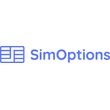Simfinity Telco LLC - propose des solutions eSIM abordables et flexibles pour les voyageurs internationaux, permettant une connectivité transparente dans plus de 190 pays sans avoir besoin de cartes SIM physiques. Avec une activation instantanée, aucun frais d'itinérance et des forfaits de données adaptés aux voyageurs, Simfinity garantit que rester connecté dans le monde entier est simple et sans tracas.

Simfinity Telco LLC - propose des solutions eSIM abordables et flexibles pour les voyageurs internationaux, permettant une connectivité transparente dans plus de 190 pays sans avoir besoin de cartes SIM physiques. Avec une activation instantanée, aucun frais d'itinérance et des forfaits de données adaptés aux voyageurs, Simfinity garantit que rester connecté dans le monde entier est simple et sans tracas.
Forfaits de données eSIM Simfinity pour l'Afrique du Sud
Questions fréquemment posées
Simfinity propose-t-il un eSIM à données illimitées pour l'Afrique du Sud ?
Simfinity ne propose pas de eSIM à données illimitées spécifiquement pour South Africa. Tous ses plans uniquement pour South Africa ont une limite de données fixe, le plus grand étant un plan de 20 GB à 43, 40 USD pour 30 jours. Les seuls plans à validité illimitée sont les passes globales ou mondiales, mais ils comportent toujours des plafonds de données de 10 GB ou 25 GB.
Les voyageurs qui ont besoin de plus grandes capacités de données peuvent choisir parmi les eSIM à données fixes comme les options de 20 GB ou 10 GB, qui offrent une solution plus simple et souvent plus économique à moins qu'un utilisateur très intensif de données ne consomme plus que la limite du plan.
Simfinity offre-t-elle une eSIM sud-africaine avec numéro de téléphone et SMS?
Simfinity ne fournit aucune eSIM South Africa incluant un numéro de téléphone local ou la capacité d'envoyer des SMS. Leurs offres pour South Africa sont limitées aux plans uniquement data, donc les utilisateurs ne recevront pas de service vocal ou de texte via l’eSIM elle‑même. Les voyageurs peuvent toujours utiliser des applications VoIP populaires telles que WhatsApp, Telegram et iMessage sur la connexion de données pour passer des appels et envoyer des messages, mais un numéro de téléphone traditionnel ou un service SMS n’est pas disponible via Simfinity pour cette destination.
Combien de forfaits de données Simfinity propose-t-il pour l'Afrique du Sud ?
Simfinity propose 6 forfaits de données à usage unique pays, spécifiquement conçus pour l’usage en South Africa, et 14 forfaits multipes pays qui incluent South Africa parmi d’autres destinations. Les forfaits à pays unique varient de prix de ~1, 80 $ à 40 $ et offrent des plafonds de données allant de 100 Mo à 10 Go, tandis que les options multipes pays s’étendent de 45 $ à 158 $, avec des limites de données entre 1 Go et 25 Go. Les périodes de validité varient de l’absence de date d’expiration sur les forfaits les plus chers à des limites de 30 jours sur de nombreuses options moins chères et à court terme, et plusieurs forfaits autorisent le tethering.
Résumé avec Gen AI. Dernière mise à jour:




